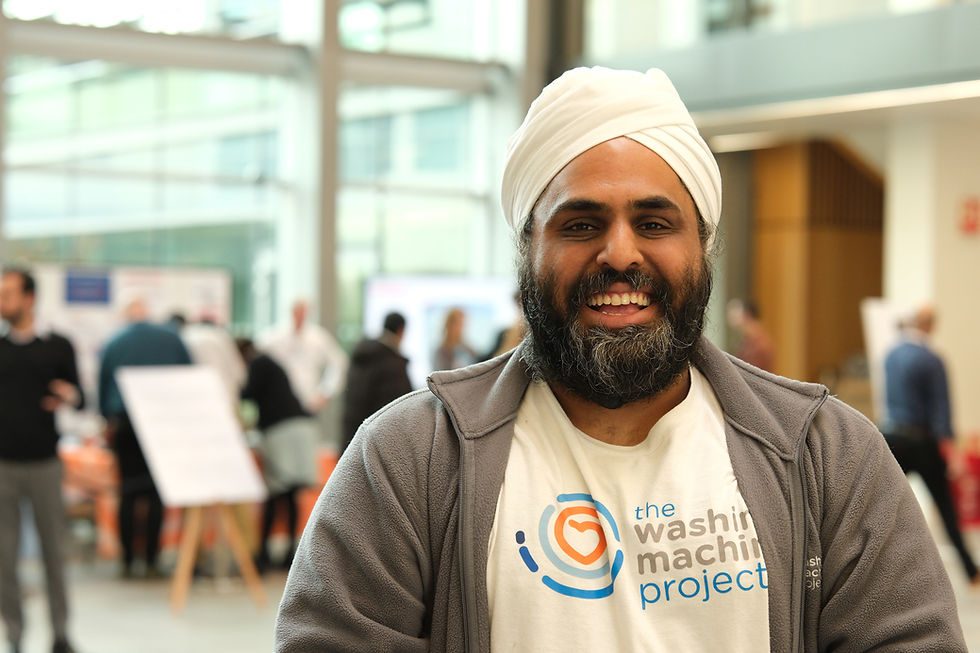A CONVERSATION ABOUT EMPIRE…IT JUST ISN’T CRICKET
- Harjot Sidhu
- Jun 27, 2021
- 3 min read
Updated: Jan 21, 2022

Discussing the topic of empire can be a very dividing and volatile subject. Just ask Sathnam Sanghera, the author of the best-selling book ‘Empireland’. The book does a wonderful job of describing the deep-rooted links to empire, that are so prevalent in our lives today. A simple rundown of the events that shape the Britain we know. But it is something that, as Sanghera says, comes with “vehement reaction” and is not a topic that one can explore casually. The vile backlash Sanghera experienced, for simply wishing to consider and analyse empire in the context of today, was shocking.
In 2014, a YouGov poll found 59% of respondents “deemed the British empire to be ‘something to be proud’ of”[i]. So, it is hardly unexpected that challenging empire comes with the reaction it does, especially considering the deeper, darker, periods of its history, which go largely unaddressed. Who would want to be reminded of the vile atrocities that come with a period held in such high regard? Why would you want to be reminded of the Tasmanian genocide where, it’s estimated, between 4,000 to 8,000 nomadic Aboriginal Tasmanians were murdered, women raped, and their farms burnt[ii]? Or, the looting of riches, which are now on show in many public places in the U.K, as wonderous attractions? Or, the 1919 Jallianwala Bagh massacre in Amritsar, India, where a storm of bullets rained down for 10 minutes on hundreds (some estimate thousands) of helpless and vulnerable Sikhs in an enclosed public garden, by the British Indian Army, with no opportunity for escape? Sanghera writes of a British eyewitness to the massacre who asked the General in command of the operation (Reginald Dyer) ‘Do you think they’ve had enough?’ to which Dyer responded ‘No, we’ll give them four more rounds.’[iii]
We can try and ignore these aspects of history, but we can’t talk about cricket without considering how empire is intrinsically linked to the ‘Gentleman’s Game’. In on of my previous posts, I spoke to Dr. Thomas Fletcher. In his paper ‘The making of English cricket cultures,’ Fletcher mentions how, “within the British Empire, cricket was an important national symbol of Englishness.”[iv] It also promoted an “obedience to the rules, and respect for ‘fair play’.” Sanghera points to how “the values of fair play, courage and resilience, nurtured on the games fields of public schools, were seen as key to developing the imperial ruling race.”[v] Cricket was key to empire, not only as a sport that aimed to unite colonies, strengthen imperial ties and bring great joy to those on the playing and battle fields, but it also stood for everything that was quintessentially ‘English’. It galvanised yet controlled. “Rather than binding the Empire via mutual respect, the British tried to bind it around visions of sameness,” Dr. Fletcher’s research finds.
It then becomes obvious where the phrase ‘it isn’t cricket’ originates from. The idea that anything which doesn’t hold up to certain values, goes against an agreed rule set or doesn’t conform, just isn’t considered ‘English’ enough. Both Sanghera and Fletcher refer to the phrase, in their writing. It could be argued that the British Empire’s legacy still has a stranglehold on the game’s ideologies, today. Some would say this is blindingly obvious. It could explain where we are with regards to issues of racism, prejudice and exclusionary practices. Perhaps it might help us understand why some are reluctant to accommodate those that don’t fit the typical ideology of an Englishman, whether that’s due to culture, or appearance? As Dr. Fletcher suggested in our conversation, it might just be easier for some to not have to accommodate for things like diet, or religious practices. Why upset the status quo? Just select and hire those that fit the mould, a mould which has undeniably been formed by empire. Right?
If we can’t even begin to discuss empire, without the fear of venomous abuse, how are we meant to learn from it? How are we to drive forward (pun intended)?
It just isn’t cricket, is it?
KEEP UP TO DATE WITH THIS BLOG ON INSTAGRAM AT WWW.INSTAGRAM.COM/LONDONWRITINGGUY
[i] https://yougov.co.uk/topics/politics/articles-reports/2014/07/26/britain-proud-its-empire [ii] Empireland. Sathnam Sanghera. Page 144 [iii] Empireland. Sathnam Sanghera. Page 18. [iv] The making of English cricket cultures: Empire, globalisation and (post) colonialism. Dr. Thomas Fletcher [v] Empireland. Sathnam Sanghera. Page 5.





Comments